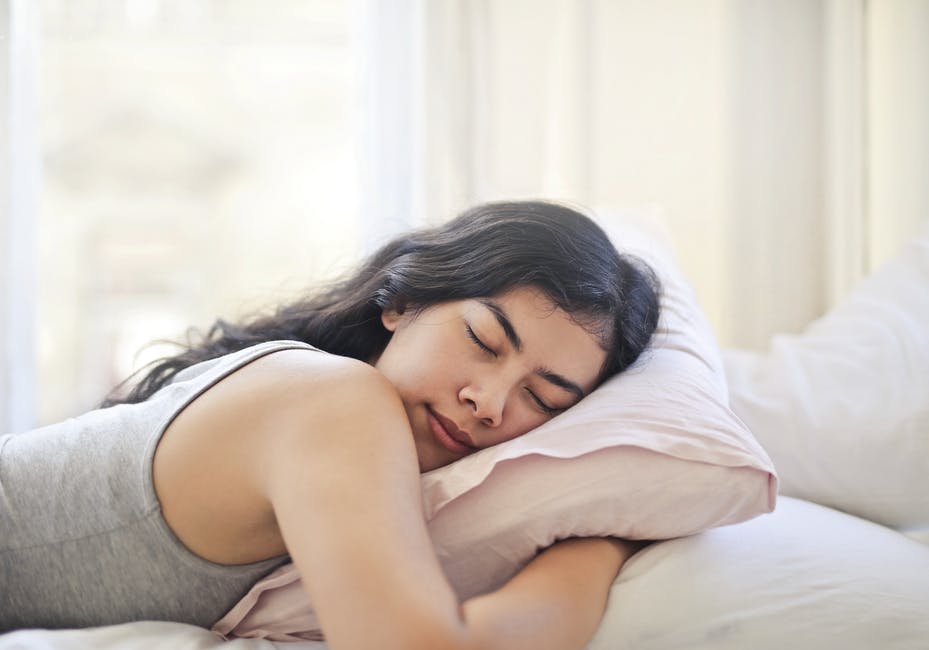Good Sleep and Mental Health: What is the Connection?

You've been tossing and turning all night every night and it's starting to take a toll on your mental health. You're moody, stressed, and overall feeling bad. What's going on?
It could be the result of poor sleep.
Good sleep and mental health are tied together. If you're not sleeping, your mental wellness will suffer. Let's talk about why.
Read on to learn a few ways that poor sleep can impact your mental health (and how you can work on improving sleeping habits).
Can Sleep Cause Stress?
Sleep can cause stress, and not just because you'll be feeling sleepy and lethargic the next morning at work.
When you don't get enough sleep, your body produces more cortisol. Cortisol is the "fight or flight" hormone. In other words, it's what tells your body to get up and go. Unfortunately, this can make your sleep even worse.
Stress allows your brain to recharge. It also helps you process information. If you don't get enough sleep, you may find yourself getting into more stress-inducing "thought spirals" that are difficult to escape from.
Can Stress Cause Emotional Instability?
Stress is a key cause of mood swings and other types of emotional instability. When you don't get enough sleep, your ability to regulate your emotions isn't as good.
Activity levels in the amygdala get higher when someone doesn't get enough sleep. The amygdala is the part of the brain that controls your emotions. When it's not in tip-top shape, you're going to be prone to higher emotional reactivity.
You're also going to be more prone to making rash and risky decisions.
If you've ever woken up "on the wrong side of the bed" and found yourself lashing out at friends, family members, and coworkers for no reason, this might be the cause!
Can Sleep Impact Pre-Existing Mental Health Issues?
If you already have pre-existing mental health concerns, poor sleep can make them worse. Unfortunately, the connection between mental health disorders and sleep works both ways. Certain mental health conditions can impact your sleep, but when they do, your poor sleep will impact the conditions.
Here are a few ways that poor sleep can have a negative impact on several mental health conditions.
Anxiety
As we mentioned before, stress and sleep go hand-in-hand. For people with chronic anxiety, this is a larger problem. When someone is experiencing anxiety that doesn't go away, it's harder for them to get to sleep.
When someone isn't able to work through difficult feelings while they sleep, the problem gets worse. It's not uncommon for someone to wake up feeling anxious when they haven't slept enough.
Unfortunately, many popular anxiety medications can cause poor sleep. Benzodiazepines, for example, will make it easier for a person with anxiety to fall asleep, but they won't be able to fall into deep restorative sleep.
Depression
Poor sleep is often a symptom of depression. People who struggle with insomnia are more likely to develop chronic depression than people who get a solid eight hours of sleep every night. Poor sleep may impact your body's ability to produce serotonin.
Treating insomnia may be instrumental in treating depression.
ADHD
Getting enough sleep is crucial for people with ADHD.
Many ADHD symptoms already resemble symptoms of poor sleep. They include poor focus, poor emotional regulation, and a lack of ability to control impulses. When you add poor sleep into the mix, those problems get exacerbated.
Unfortunately, these ADHD symptoms mean that it's common for people with ADHD to have trouble falling asleep in the first place.
How Can You Improve Your Sleep?
So with these things in mind, how can you get better sleep and protect your overall mental health and wellness? Improving your sleep is no easy matter, but there are a few tips that you can try.
Here are our suggestions.
Get a New Mattress
Your mattress might be impacting the overall quality of your sleep! Try switching mattresses for better sleep.
You might need a mattress that's firmer or softer than the one that you have now. Look into different mattress materials, like foam. If you're unsure where to start, check out this quick guide on how to choose the right mattress.
Get a Weighted Blanket
If you struggle with stress, anxiety, depression, or ADHD, or even if you just have chronic insomnia, a weighted blanket can make a huge difference.
Weighted blankets use deep pressure stimulation to trigger the release of serotonin and reduce cortisol levels, as well as increase the production of melatonin.
While research is still sparse about weighted blankets, anecdotal evidence supports the idea that they can dramatically improve your sleep and reduce the time that you spend awake staring at the ceiling.
Improve Your Sleep Hygiene
How's your sleep hygiene? No, we don't mean how often you wash your bedding. Sleep hygiene is the combination of environmental factors and habits that relate to your sleep.
So how can you improve it?
First, make sure that you're avoiding heavy meals and caffeine around bedtime. Some people need to stop consuming caffeine in the early afternoon.
Make sure that you aren't using electronics too close to bedtime. The blue light can cause sleeplessness and your social media apps and games trigger a dopamine release (which can keep you awake, especially if you have ADHD).
Consider starting a nighttime routine. About an hour before bedtime, start winding down with relaxing activities, like yoga or reading a book. This should improve your situation.
Good Sleep and Mental Health Are Connected
If your mental health is suffering, it might be due to poor sleep. Remember, poor sleep can influence your mood, stress levels, ADHD, anxiety, and depression (and more).
Don't forget the connection between good sleep and mental health next time you're feeling frazzled. You might just need a nap!
Are you ready to start getting better sleep? We've got you covered. Check out our sale page and start catching some Zs.




